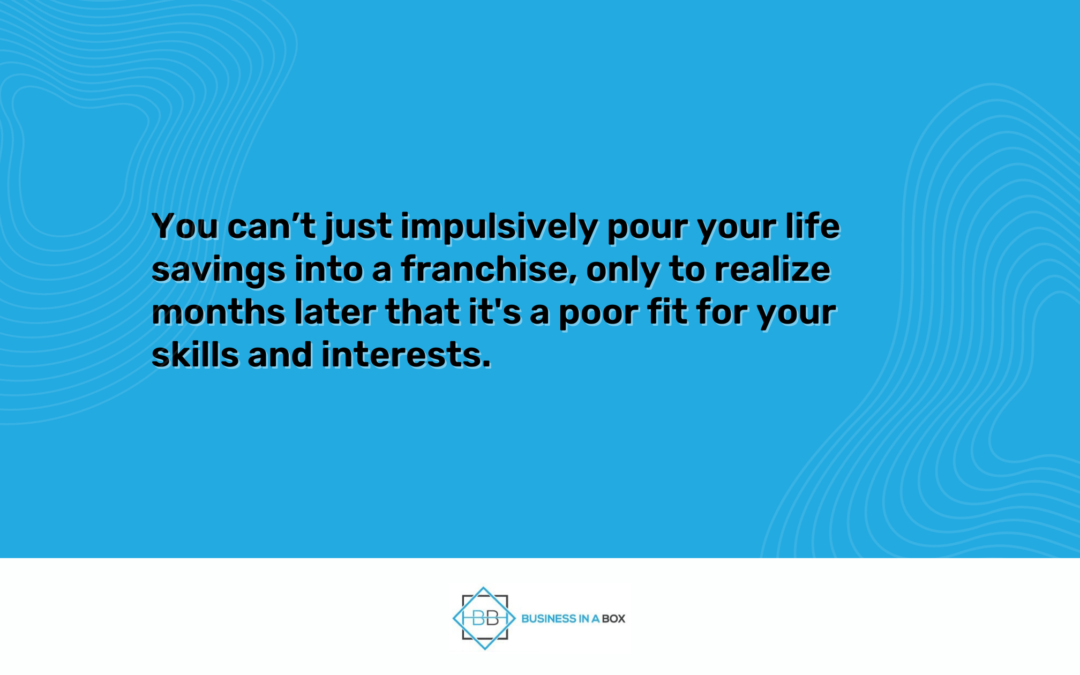Investing in a franchise is a significant financial and personal commitment. While it offers a proven business model and support system, the success of your venture depends heavily on choosing the right franchise. Thorough research is not optional; it’s a critical step in building a strong foundation for your business. Neglecting this crucial phase can lead to a cascade of negative consequences, far beyond just financial loss.
You can’t just impulsively pour your life savings into a franchise, only to realize months later that it’s a poor fit for your skills and interests. Or worse, discovering hidden flaws in the franchisor’s model that were never disclosed. The financial strain can be devastating, leading to sleepless nights and strained relationships as you struggle to keep your business afloat.
Without thorough research, you risk wasting precious time and resources on a venture that was doomed from the start. The hours spent trying to salvage a failing business could have been invested in personal growth, family time, or pursuing other passions.
Perhaps the most painful consequence of inadequate research is the betrayal of self. When you invest in a franchise that doesn’t align with your values or goals, you’re not just risking financial loss; you’re compromising your integrity and sense of purpose. The disillusionment and regret can be profound, leaving you questioning your choices and doubting your abilities.
The Power of In-Depth Investigation
Comprehensive research empowers you to make informed decisions based on facts, not hype. Key areas to investigate include:
- Industry Landscape: Analyze industry trends, projections, and potential disruptors. Understand how technology, consumer behavior, and economic shifts might impact your chosen franchise.
- Franchisor’s Pedigree: Scrutinize the franchisor’s history, financial health, and growth strategy. Look for signs of innovation, adaptability, and a commitment to franchisee support.
- Franchise System: Examine the operations manual, training programs, marketing support, and ongoing assistance. Ensure the system is robust and equipped to help you succeed.
- Franchisee Testimonials: Speak to current and former franchisees. Their candid feedback offers invaluable insights that official documents might not reveal.
- Market Demand: Assess the demand for the franchise’s offerings in your target market. Consider competition, demographics, and local economic conditions.
- Financial Realities: Carefully analyze the initial investment, ongoing fees, and projected returns. Seek advice from financial professionals and thoroughly scrutinize the franchise’s financial performance.
Leveraging Expert Guidance
While independent research is important, expert advice can uncover hidden details and offer valuable guidance:
- Franchise Attorneys: A seasoned franchise attorney can decipher the Franchise Disclosure Document (FDD) and clarify the legal intricacies of the agreement.
- Accountants: An experienced accountant can help you analyze financial statements, projections, and potential return on investment.
- Industry Experts: Consultants with industry-specific knowledge can provide insights into market trends, consumer behavior, and competitive landscapes.
Hands-On Experience: The Litmus Test
The most effective way to gauge your fit with a franchise is to immerse yourself in its day-to-day operations. Many franchisors offer opportunities to work in an existing location, providing you with firsthand experience of the business’s rhythm and challenges. This allows you to assess if the franchise truly aligns with your skills, interests, and expectations. It’s a chance to go beyond the brochures and marketing materials and see what it’s really like to be a franchisee.
Choosing a franchise is a major decision, one that demands thorough research and careful consideration. By diligently investigating industry trends, the franchisor’s track record, the franchise system, franchisee satisfaction, market demand, and financial realities, you empower yourself to make an informed choice. Cutting corners in this process is like building a house on shaky ground – it may seem tempting to save time and resources, but the long-term consequences can be devastating.

Recent Comments